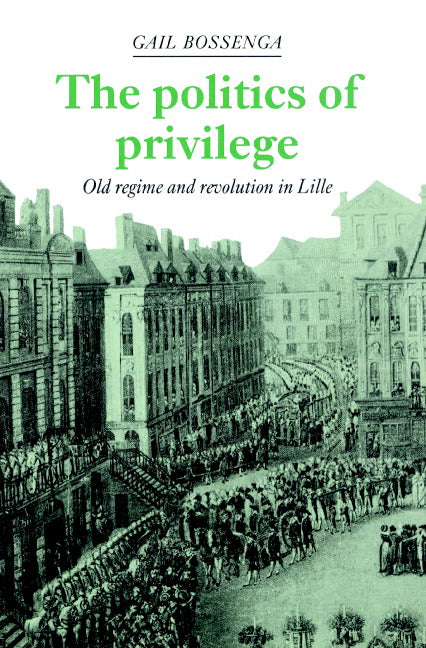Freshly Printed - allow 8 days lead
Couldn't load pickup availability
The Politics of Privilege
Old Regime and Revolution in Lille
The first study to examine in detail the political and fiscal origins of the French Revolution by sustained archival research.
Gail Bossenga (Author)
9780521893725, Cambridge University Press
Paperback, published 9 May 2002
276 pages
22.9 x 15.3 x 1.8 cm, 0.443 kg
"Bossenga illuminates the essential nature of the 1789 Revolution as a vital stage in the growth of the power of the state. Her basic thesis is that the revolution was essentially about institutional and not social change. The complexities of the relationship between the central government and the provinces are brilliantly dissected in seminal and minutely traced case studies of significant corporate bodies in Lille." Pamela M. Pilbeam, Journal of Urban History
This study analyzes the political and fiscal origins of the French Revolution by looking at the relationship between the royal government and privileged, corporate bodies at local level. Utilizing a neo-Tocquevillian approach, it argues that the monarchy undermined its own attempts at reform by extending central authority, while at the same time it continued to rely upon corporate structures and monopolies to finance the state. The unresolvable, institutional conflicts had the effect of politicising members of the privileged elite and eventually led many of them to embrace a rhetoric of citizenship, accountability, and civic equality that had far-reaching and unanticipated consequences. When Lille's bourgeoisie consolidated a municipal revolution in 1789, they followed a programme that was politically liberal, but economically conservative. Arranged as a series of case-studies, the book illuminates the structure of political power in the Flemish provincial estates, the growth of royal taxation, the problem of municipal credit, the role of venal officeholders, and the relationship of the revolutionary bourgeoisie to monopolies of the guilds.
List of figures and tables
Preface
List of abbreviations
1. Monarchy, privilege and revolution: the problem and setting
2. State finance and local privileges
3. Corps, bureaucracy and citizenship: the case of the Bureaux des Finances
4. The excluded nobility and political representation
5. A nation of equals: the demands of the Third Estate
6. Uses of a regulated economy: the state against itself
7. Corporate privilege and the bourgeoisie
8. The abolition of the guilds
9. The corporate heritage and the well-ordered state
10. Conclusion
Notes
Bibliography
Index.
Subject Areas: Modern history to 20th century: c 1700 to c 1900 [HBLL], European history [HBJD]


